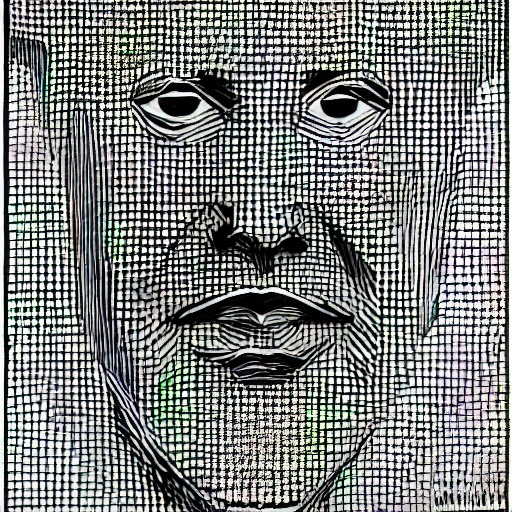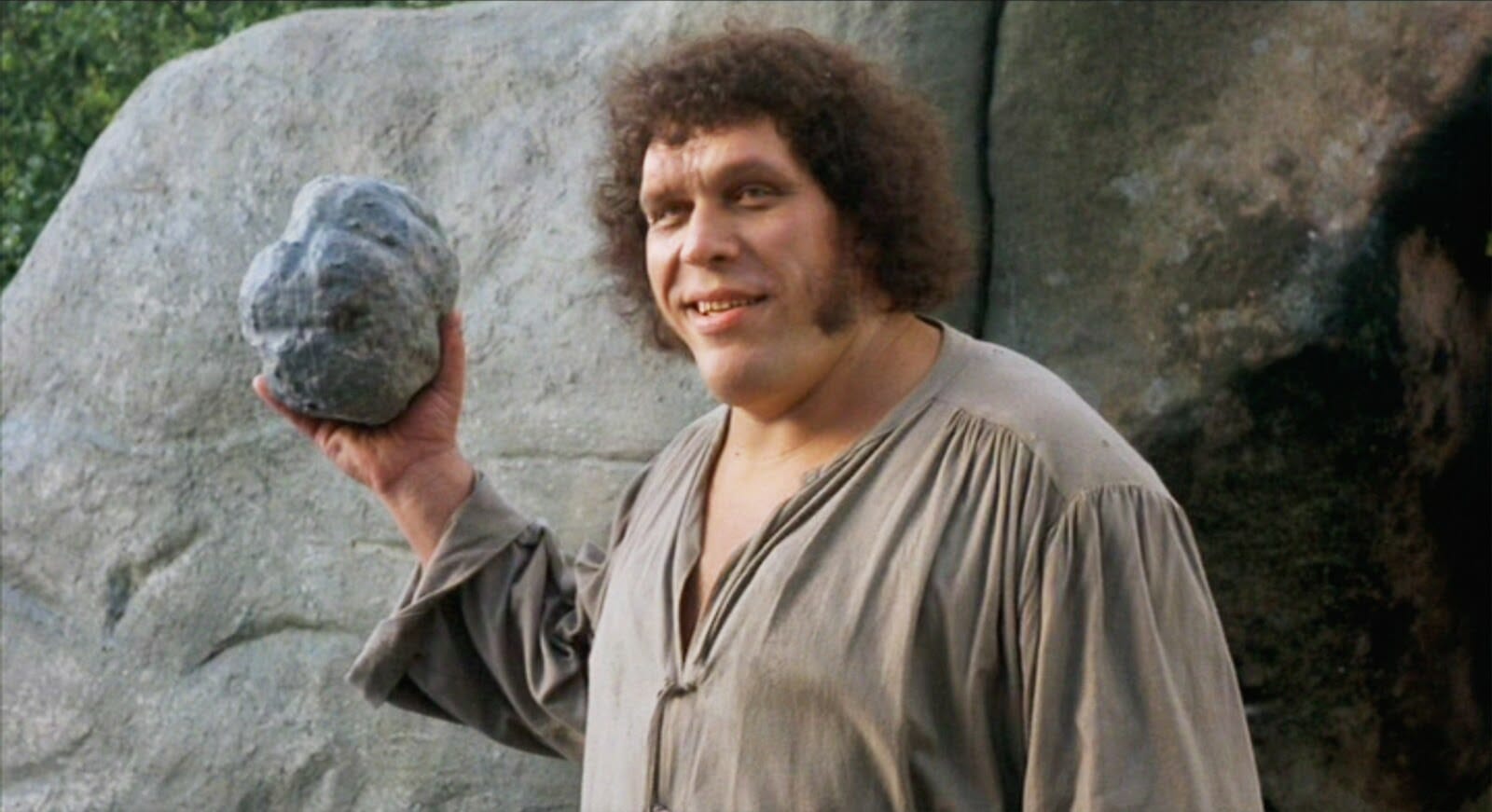Is this some sort of remnant of evangelical puritan protestant ideology?
I don’t understaun this.
If you ask me, it’d make as much sense as Orthodox and Christians… or Shia and Muslim…
I know not all Christians are Catholics but for feck’s sake…
They’re all Christians to me…
Edit:
It’s a U.S thing but this is the sort of things I hear…
https://www.gotquestions.org/Catholic-Christian.html
I am a Catholic. Why should I consider becoming a Christian?
I now know more distinctions (apparently Catholicism requires duty and salvation is process, unlike Protestantism?) but I still think they’re of a similar branch (Christianity) so I just wonder the social factor
Growing up in a “non-denominational”, independent fundamental Baptist house I was always taught that Catholics weren’t Christians because they worship idols. Now that I’ve left the faith I would easily classify them as being Christian.
While I think many people actually do classify them as Christians they do have some significant differences in their beliefs and practices than most Protestant denominations; and being themselves the largest Christian denomination by far it can be useful in some analysis to treat them as a distinct entity (the answer to “percentage of global population that subscribe to a particular religion” is much more interesting when broken into “Christian Catholic: %” and “Christian Other: %”).
If anything Catholicism is much more traditionally Christian, as it’s the stablished status quo outside of the anglosphere.
deleted by creator
Oh shit! Independent Fundamental Baptist! I had to deal with living with that shit, too. At the end of the day, if the king james bible was good enough for Peter and Paul, it’s good enough for me. Also, rock music is the devil.
I went to Bob Jones. There was a kid there got in trouble playing the guitar cause what he was strumming had “that sound.” No lyrics, just him strumming it wrong was sinful. Ain’t no way that kinda teaching gonna fuck someone up for life.
I went to a small private Christian high school too. Our Junior year we did a “college tour” to check out Christian Colleges. We visited Bob Jones, and I was blown away. That place is fucking wild. I’m glad I settled on Penn State in the long run.
What does “non-denominational” mean? Isn’t Baptist the denomination?
In this context it was meant as a joke. Several Baptist institutions incorrectly label themselves as being “non-denominational” even though they are completely ideologically aligned with the independent Baptist movement.
All the non-denominational churches are just a denominational church in denial. Pentecostals use it a lot too, but it’s pretty obvious once you know
There’s plenty of great commentary here about why Christianity is divided up into different sects, but I think you’re primarily interested in the narcissism of small differences. (https://en.m.wikipedia.org/wiki/Narcissism_of_small_differences)
Basically, if you’ve read about Dr. Suess’ Starbellied Sneeches, you get the idea. Human brains are exceptional pattern recognition machines, and when a society is so homogenously Christian then those small differences become the cleavages along which identities form. That leads to things like Catholic / Christian divisions and the formation of the best joke in The Guardian history:
Once I saw this guy on a bridge about to jump. I said, “Don’t do it!” He said, “Nobody loves me.” I said, “God loves you. Do you believe in God?”
He said, “Yes.” I said, “Are you a Christian or a Jew?” He said, “A Christian.” I said, “Me, too! Protestant or Catholic?” He said, “Protestant.” I said, “Me, too! What franchise?” He said, “Baptist.” I said, “Me, too! Northern Baptist or Southern Baptist?” He said, “Northern Baptist.” I said, “Me, too! Northern Conservative Baptist or Northern Liberal Baptist?”
He said, “Northern Conservative Baptist.” I said, “Me, too! Northern Conservative Baptist Great Lakes Region, or Northern Conservative Baptist Eastern Region?” He said, “Northern Conservative Baptist Great Lakes Region.” I said, “Me, too!”
Northern Conservative†Baptist Great Lakes Region Council of 1879, or Northern Conservative Baptist Great Lakes Region Council of 1912?" He said, “Northern Conservative Baptist Great Lakes Region Council of 1912.” I said, “Die, heretic!” And I pushed him over.
https://www.theguardian.com/stage/2005/sep/29/comedy.religion
They all generally affirm the same things though, it’s just the Bible doesn’t say exactly how to practice Christianity, so add two thousand years and weird theological technicalities like real presence (and how much real is the presence, it’s a spectrum), church structure and organisation, authority, etc, then you have a bunch of different denominations. Most of them though do actually respect each other in an ecumenical fashion. The “Catholics aren’t Christian” sect would be a fringe minority, the same type who would believe the world is 8,000 years old and that the KJV is the only proper English translation.
There may be an earlier version, but I know this as an old Emo Phillips joke
All the big (and probably small) schisms happened primarily for political reasons (i.e. material interests, power struggles). It’s just that lots of other issues (including small differences) tend to align themselves along the same lines, because I guess that helps with the polarization. Doesn’t mean this “narcissism of small differences” doesn’t exist, just that it’s not the cause, but rather part of the dynamic.
With all due respect, this is not reflective of the protestant revival movement in the US in the 1800s. The second awakening was absolutely a bunch of rival interpretations of the word claiming they were right b/c (insert reason here).
I probably should have been more specific in my original reply but when we’re taking about US “Catholics aren’t Christians” that’s 100 percent the origin of the trope. I can’t speak to the Irish version but I’d challenge anyone about it in the US. That’s why we needed an Ecumenism movement in the first place after all.
If you are curious look up the Protestant Reformation, Martin Luther and his 99 Theses.
I’m paraphrasing and my thoughts on what I experienced this but it came down more to the idea that Catholics worship the pope and the saints more than god and jesus. If you were the leader of a nation that called themselves Catholic you could find the Pope telling you what to do when it came to war and if you declared war on another Catholic country the Pope could tell you to stop or to declare peace. To not do so was in danger of having all other Catholic nations declare war.
Not to mention the many saints you are required to pray to, Purgatory and praying for the dead, all of the rituals, services in Latin, worship of the virgin mother, the schism that split the church between two Popes who excommunicated each other, etc.
Protestantism did away with all of that. No single leader, the ability to create different sects that didn’t make you an apostate of the church, etc. Now don’t get me wrong even the same sect don’t always believe the exact same things and it can get pretty nit-picky, but Protestantisn can change with the times more easily than Catholicism can.
The goal was to make less of a ritual cult like Catholicism had become, and more of a focus on the meaning of the the actions of jesus, being able to actually get to heaven without all of the pomp and circumstance that really meant nothing, and all that crap.
The worry is the President would be more loyal to the other Catholics than the rest of the nation and would be bound by cult rules than the will of the people.
Ironically enough right now it’s the Catholic President trying to stop rights from being taken away while there are both Protestants and Catholics in the Supreme Court and other facets of the government that are working so hard to do the opposite.
And yet what a actually happened is that Catholics ended up generally more liberal and Protestants ended up becoming evangelicals and causing a lot of the problems currently faced in, for example, the US.
Edit’ Catholicism continues to try to bleed any kind of support by protecting pedophiles in case you feel like I am being too lenient toward Catholicism.
Evangelicals are an almost entirely US phenomenon. In the rest of the world, Protestant countries like Germany and the UK are more liberal than Catholic countries like Ireland and Italy. For example, Italy “legalised” abortion in 1978 but the vast majority of gynaecologists refuse to perform them on religious grounds. Ireland didn’t legalise until… 2019!
Lol at UK being more liberal than Ireland! Yes in terms of their abortion laws they were very behind until recently, but in every other way I can think of Ireland has been way more progressive. UK politics meanwhile (driven by middle England Sun readers) busy trying to brexit ourselves back to the spirit of the blitz or something. Can’t wait to get my blue passport, God save the king!
Ended up? Shit, Protestants started out way more strict. You’d have to worry about being beaten to death if you had any images of Mary or Jesus during the Great Iconoclasm. Most of the Protestants sects back then did not think Catholicism was strict enough.
deleted by creator
that has more to do with evangelicals and events some catholics got conned by corporate interests in the early 30s in response to what FDR was doing with the new deal and the sweeping socialist thinking going around in churches at that time. read up on James W. Fifield Jr and NAM ( National Association of Manufacturers) you will see the destruction of US churches and the rise of the mega church and the 700 club.
deleted by creator
Pelosi is also a pro choice Catholic.
Huh? There have always sects of Protestantism that were more conservative, but by-and-large Catholicism is against birth control, abortion, homosexuality (maybe not this pope, with homosexuality) but trans rights, priests marrying, women worship leaders, etc. Sure not one Protestant sect is going to allow everything, but growing up Catholic and then converting to Lutheranism they didn’t have a problem with birth control, pastors having families and stuff.
And that not mentioning the more liberal small churches that didn’t had exceptions to everything.
Don’t get me wrong, they all have a long way to go still. They all teach we are all god’s children but then immediately backpedal
It’s because Protestantism is the dominant form of Christianity in cultures where this language convention exists, and it is a deliberate tactic to other Catholics by labeling them non-Christian. Especially in previous times, Catholics were subject to large amounts of discrimination and antagonism by Protestants, and we’re still dealing with the remnants of this ideology today. I think the only reason it has subsided is the rise of secularism and other more foreign religions that are seen as a greater threat by Christians, forcing them into an uneasy alliance with their former enemies. But remember that tons of Christians used to murder each other over which sect they belonged to.
Interestingly, in Central America, the opposite convention exists, where you are either “Cristiano”, meaning Catholic, or “Evangelico”, meaning Protestant (usually Pentecostal). This is because the dominant group is reversed in that society.
Personally, I view Christianity, Islam, and Judaism as three branches of one religion since they are clearly very similar. But that is the view of an outsider.
I view Christianity, Islam, and Judaism as three branches of one religion since they are clearly very similar. But that is the view of an outsider.
nah, they’re grouped together under the umbrella of “Abrahamic religions”, and at least muslims regard the other two as “people of the book”.
obv your mileage may vary from person to person, I’m not saying the terrorist idiots don’t call people infidel left right and center don’t exist, but people who are a bit better than that generally see christians and jews as peers.
Don’t forget the Baha’i, the Babs, and the Druze. Don’t know if they’re considered people of the book or not. Same with the Samaritan Israelites
I’ll just copy paste Wikipedia since it’s actually pretty good here:
In the Quran [the people of the book] are identified as the Jews, the Christians, the Sabians, and—according to some interpretations—the Zoroastrians. Starting from the 8th century, some Muslims also recognized other religious groups such as the Samaritans, and even Buddhists, Hindus, and Jains
We don’t actually know who the Sabians were, though there are a few theories.
I think only Christians, Jews, and Sabians are al-Khitab if I recall correctly from my course on Islam two decades ago.
Don’t forget Catholicism spent centuries converting with a sword and their missionairies destroyed all remnants of native cultures history once they were converted. That’s an awful lot of discrimination from Catholics.
Of course. This was written from the perspective of the English-speaking world, so I primarily focused on Protestant discrimination against Catholics, because that was the norm for several centuries. But as I alluded to in the last section, in predominantly Catholic areas, the situation was about the inverse and similar campaigns were waged against Protestants.
some sort of remnant of evangelical puritan protestant ideology?
Yes. It’s weird.
Because some sects of Christianity (mostly Southern Baptist) are fucking insane and spiteful.
I can maybe understand it if they’re talking about UUs. Speaking as one, we’re not entirely sure what the hell we are either. We’re in committee trying to figure that out. </self_deprecating_joke>
Once I saw this guy on a bridge about to jump. I said, "Don't do it!" He said, "Nobody loves me." I said, "God loves you. Do you believe in God?" He said, "Yes." I said, "Are you a Christian or a Jew?" He said, "A Christian." I said, "Me, too! Protestant or Catholic?" He said, "Protestant." I said, "Me, too! What franchise?" He said, "Baptist." I said, "Me, too! Northern Baptist or Southern Baptist?" He said, "Northern Baptist." I said, "Me, too! Northern Conservative Baptist or Northern Liberal Baptist?" He said, "Northern Conservative Baptist." I said, "Me, too! Northern Conservative Baptist Great Lakes Region, or Northern Conservative Baptist Eastern Region?" He said, "Northern Conservative Baptist Great Lakes Region." I said, "Me, too! Northern Conservative Baptist Great Lakes Region Council of 1879, or Northern Conservative Baptist Great Lakes Region Council of 1912?" He said, "Northern Conservative Baptist Great Lakes Region Council of 1912. I said, "Die, heretic!" And I pushed him over.-Emo Philips
This is actually a shortened version of the original.
Here is an alternative Piped link(s):
Piped is a privacy-respecting open-source alternative frontend to YouTube.
I’m open-source; check me out at GitHub.
That type of specification would probably never happen.
Hundreds of years of infighting
Thousands really.
Protestantism hasn’t even existed for a thousand years. Heck, even the Great Schism between Eastern Orthodox and Romans Catholicism churches happened less than a thousand years ago (though that should become no longer true within our lifetimes).
Infighting, as in, within itself.
Sure, but this thread isn’t about infighting among Christians broadly, it’s specifically about the use of “Christian” and “Catholic” in a context where they seemingly mean different things.
To be honest I find most of this thread incredibly frustrating, because so many people are explaining Christian schisms to OP, as though they don’t already know about that. But that’s not what they asked.
I was responding to the thread not the OPs question. May be frustrating for you but that was the context for me.
This thread was still about Catholics and Protestants, not broader conflicts among Christians.
It’s like progressives and liberals 1000 years from now
If any of this recognizably lasts 1000 years I’ll have a better opinion of it, ancient egypt is still smirking at us
This might be a regional thing. At least in Germany, where the reformation took place, the term Christian include all groups, protestans, catholics, orthodox etc.
In Austria, when people say “Christian”, I’m convinced that 90% of people only think of the Roman Catholic Church. Even though the term includes all groups.
Isn’t it like that 90% of christians are actually Roman Catholics there?
Even more I believe, yes
It’s really a US thing. That’s where most of the whacky religious stuff comes from these days.
Most Catholic people in the mid 19th century in the Americas were imagrants or Mexican and considered non-white.
Catholics see themselves as the root form of Christianity that other versions forked from. Whilst it’s not technically true, as there are many versions of Christianity that pre-date Catholicism, in most countries where the term “Catholics and Christians” is used, it’s accurate enough
As an ex catholic who grew up near Protestant land, it’s because they don’t think of Catholics as Christians. Some think of them as more like Mormons, others more like Satanists. The plus side is that it was a great card to pull to these people when they proselytized. They’ll tell Protestants they need a better version of jesus, but Catholics scare them.
Growing up in west Texas, I talked to one uber-Baptist who for some unfathomable reason believed that the Catholics “worship Mary”, therefore they don’t follow the “there is only one God” rule and therefore aren’t Christian.
Yeah. The Southern Baptist sect was literally founded on the belief that chattel slavery was a good and “godly” thing, it doesn’t get better from there. A woman having any deference is pretty offensive to them (the woman’s “place” being purely in service of the patriarch of the family, whether husband or father). Mary being venerated as a saint is pure anathema.
I grew up protestant, this is 100% correct haha
As an American who was raised Lutheran, who was taught a bunch of Romance-Euro-centric world history in school, I always considered Roman Catholic to be the “default” flavor of Christianity. Protestantism in all of its forms are hard forks. It’s in the name, even–the Roman Catholic church is what Protestants are “protesting”.
To unironically “-and Zoidberg” Catholicism out of Christianity while leaving Protestant flavors included feels completely backwards. I’ve never heard anyone do it.
But if I did, I could only assume it was due to some No True Scotsman bullshit. “Only we practice the correct way. Everyone else isn’t just interpreting it differently, but interpreting it wrong.” Sounds like an Evangelical line of thought to me.
They have the next outgroup to eliminate lined up in case they run out of minorities to discriminate against.
Catholics are one of America’s og boogeyman. They used to fear the idea of a catholic president who could be influenced by the pope. I’m not sure when that went away.
There was (manufactured?) outrage when Tony Blair converted after his premiership. I don’t think the topic of the current UK prime minister’s religion even came up when he was appointed. I guess that’s progress.
I don’t think the topic of the current UK prime minister’s religion even came up when he was appointed.
oh it came up, along with worse.
there’s are reasons why Rishi Sunak is an unfit bastard to be PM, but it’s the same reasons as Boris Johnson and Theresa May.
I guess I didn’t notice in the coverage I watched. Was it the daily mail or just the dreges of the internet?
https://www.youtube.com/watch?v=cPYdzIt7p7s
and it got worse after he became PM, then the storm blew over.
didn’t help that there was a Hindu celebration that of course he participated in soon after he became PM. I’m not saying it was bad that he did it, I’m saying that it made his standing worse.
Random racists is just background noise these days. I was comparing media coverage and comments from panelists on things like question time. It was certainly an area of comment for Blair and less so for Sunak from my recollection.
I mean, there’s something to be said here about modern history (as in, the scope that’s about 10 years ago) that I remember there being some hubbub, but not being bothered/capable enough to find specific examples in the scope you want.
I was there when it happened, and I remember it being discussed in the spheres you’re talking about, and that was the example I chose to illustrate my point. If you like, you can do some digging, but I’ve done my part.
Here is an alternative Piped link(s):
https://www.piped.video/watch?v=cPYdzIt7p7s
Piped is a privacy-respecting open-source alternative frontend to YouTube.
I’m open-source; check me out at GitHub.
“The Pope is taking over!” - oligarchs probably
Remember when Irish and Italians were dirty whites?
Hate… finds a way.
Catholics are Christians, but Christians are not necessarily Catholic. For example, Orthodox Christians are not Catholic. Being Catholic requires, at the bare minimum, agreement with the Holy See and implicitly the dogma he endorses. Even this “minor” difference can be used to find non-Catholic Christians.
Precisely, Catholic ⊊ Christian.
The reason why this is the case has to do with the history of Christianity, specifically the various schisms throughout the ages as the Christian faith evolved. That’s an incredibly complicated topic which I’m not qualified to discuss.
Catholics are Christians, but Christians are not necessarily Catholic. For example, Orthodox Christians are not Catholic. Being Catholic requires, at the bare minimum, agreement with the Holy See and implicitly the dogma he endorses. Even this “minor” difference can be used to find non-Catholic Christians.
I know that, but if you ask me, it’s like saying Sunni and Muslim, one kinda emphasizes, if not “otherizes” (orientalize or occidentalize) the other… usually in a not good way…
One kinda emphasizes, if not “otherizes” the other… usually in a not good way…
Yeah. People have been killed over being Catholic in a non-Catholic Christian society and people have also been killed over being a non-Catholic Christian in a Catholic society.
But that doesn’t mean that we can’t or shouldn’t differentiate at all between the dogmas of Catholics and the wider practice of Christianity.
(orientalize or occidentalize)
I mean there are lots of non-Catholic Churches with European origins, for example Lutheranism and Anglicanism. So I think it’s a bit more complicated than “otherizing” with respect to that specific dichotomy.
If you believe your religion is the only correct one, you’ll make sure to distance yourself from other variants even of the same faith.
America is far from Europe and if there are people believing the US is the pinnacle of creation and Trump reincarnated Jesus himself, that phrase will eventually come up and stick

Jesse, WTF are you talking about
I’ve never heard the phrase Catholic and Christians before. Catholic vs Protestant maybe.
I worked with a Southern Baptist guy who legitimately thought Catholic aren’t real Christians.
I have no idea how he thought Southern Baptism is somehow more Christian than the much much older version.
Ketchup and condiments






















